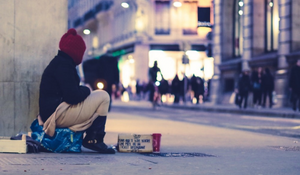 Did you know that more than half a million homeless people in the United States?
Did you know that more than half a million homeless people in the United States?
That figure is concerning in general, but it is even more so when you consider that the causes of homelessness are easily remediable. Many people mistakenly believe that homelessness is the result of a person's own personal failures in life. That could not be further from the truth, as there are numerous other structural issues that are directly responsible for homelessness in America.
Let's look at how structural inequality contributes to homelessness.
Poverty and Affordability
The cost of living in America has steadily risen in recent years. As a result, the number of people living in extreme poverty has increased. According to recent data, approximately 37 million people in the United States are currently living below the poverty line. Extreme poverty is arguably one of the leading causes of homelessness. It directly forces people to live on the streets because shelter is no longer an affordable option for them. Poor people in the country can no longer afford basic necessities, so they live on the streets, where rent isn't an issue.
Stigmatization
Another factor to consider is the stigmatization of homeless people in the United States. Homelessness is no longer regarded as a sympathetic state. People often look down on the homeless and regard them as a burden on society. The stigmatization of homeless people makes it difficult for them to find work, acquire basic resources, and get back on their feet. Not to mention that a sizable proportion of homeless Americans are people of color (namely, African-American and Hispanic people). Racial bias also plays a significant role in stigmatization.
Wealth Inequality
When you look at the country's wealth inequality, it's easy to see how it contributes to homelessness. The top 10% of American households and families currently control 70-80% of the country's total wealth. When income and wealth do not circulate throughout the economy, they are hoarded by a few. Poverty, which is a major cause of homelessness, is the direct result of this. As wealth and income inequality increase in the United States, so will homelessness.
Help the Vulnerable More Efficiently-Apr-29-2022-05-20-02-17-PM.png?width=300&name=Untitled%20design%20(1)-Apr-29-2022-05-20-02-17-PM.png)
Many nonprofits that serve homeless people are struggling to manage their caseloads in today's environment. FAMCare has been providing case management software to agencies for over two decades. Agencies use our nonprofit case management software to better assist their vulnerable populations. We, on the other hand, strive to be more than just another software company.
In our blog, we publish articles that highlight key relevant topic matter for people working in social service fields. We've chosen a few other popular blogs on the subject that we hope, you might find relevant.
The Rich Get Richer and The Poor Get Poorer

